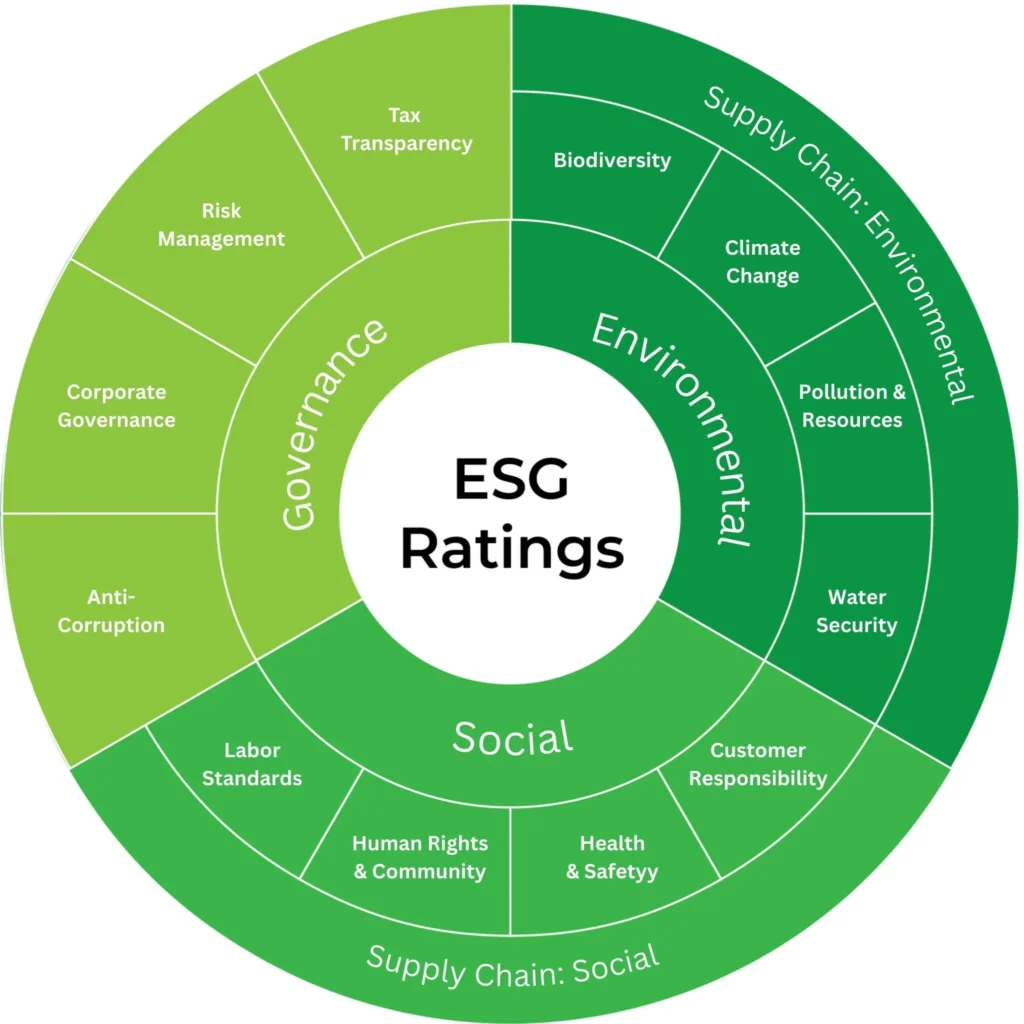ESG ratings evaluate companies based on three key areas: Environmental, Social, and Governance. These ratings assess how well a company manages risks and opportunities related to sustainability, social responsibility, and ethical governance practices. While they offer insights into a company’s long-term risks and prospects, they do not necessarily measure the actual impact a company has in these areas. For example, FTSE Russell’s ESG Ratings help investors understand a company’s exposure to ESG risks and its strategies for managing them, using over 300 customized indicators. These ratings are primarily focused on assessing risk exposure and potential financial returns, with higher scores suggesting lower risk. However, they may not always accurately reflect a company’s true ESG impact, which can make them less reliable when it comes to evaluating sustainability-focused investments. Investors mainly use these ratings to gauge the financial risks associated with ESG factors. The ESG ratings market itself is complex and often debated, as these ratings aim to assess how well companies meet sustainability, social, and governance objectives. Despite their usefulness, they may not always offer a complete picture of a company’s environmental, social, or governance performance, and are primarily intended for evaluating financial risk, rather than true impact.












